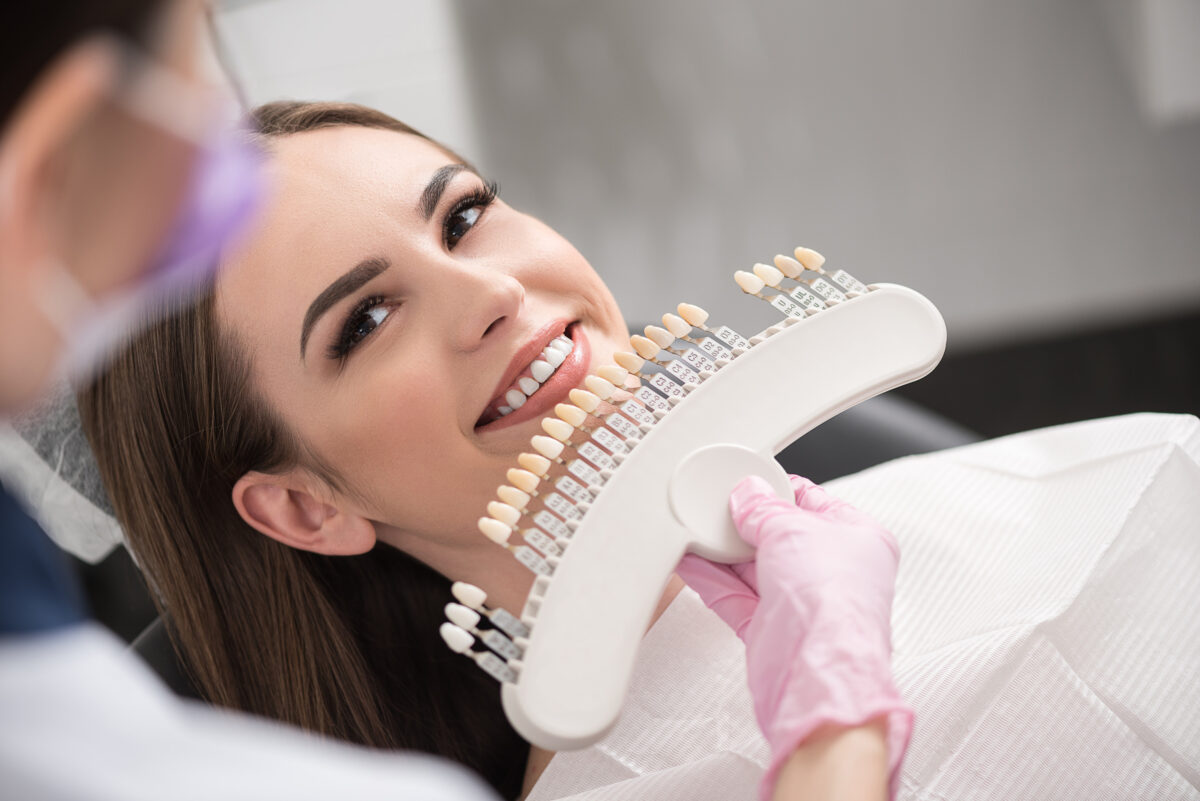Porcelain veneers are one of the most accessible and popular cosmetic dentistry solutions for patients in NE Calgary. Their popularity stems partly from how quickly they can be prepared and placed, the variety of flaws that veneers can hide, and their relatively low cost. One question that the staff at Totally Dental receives quite often is whether porcelain veneers are safe for your teeth.
The entire staff at your dental clinic in NE Calgary is determined to provide safe alternatives to help you achieve your cosmetic dentistry goals, including veneers. The question is an important one, though, and to answer it properly, we need to give you some information about the different types of veneers and how they work. With that information in hand, you’ll fully understand the risks of veneers alongside their obvious advantages.
Two Types Of Porcelain Veneers
Porcelain veneers of all types are small shell-like items usually made of porcelain designed to cover a tooth that is flawed in one or more ways. It may be misshapen, oddly spaced or sized, stained, or all of the above. Placing a veneer over that flawed tooth hides all those flaws and projects a pristine profile. There are two main types of veneers.
Traditional Veneers
Before a traditional porcelain veneer is placed on your tooth, our dentist in NE Calgary will need to grind down some material from your tooth. Removing that material is necessary so the veneer can lay flush on and bond to your tooth without adding unnatural-seeming bulk. The removed material will include your enamel and may extend past the enamel layer.
No-Prep Veneers
“No prep” refers to no preparation. A tooth that will be covered with a no-prep veneer still needs to be prepared — the name is a bit of a misnomer — but the preparation is much less invasive. Preparing for a no-prep veneer may still require the removal of some material from your tooth, but if so, only some enamel will be removed.
Are there Risks to Getting Veneers?
We can only answer this question very generally. A complete answer to this question is only possible with general information about the underlying tooth or teeth, gums, and oral health. To understand what will be involved when you get porcelain veneers near you, you should discuss the question with our dentist near you who can examine the teeth you want to cover.
The porcelain veneers and bonding material that attaches them to your teeth are not harmful. Those veneers mask flaws that may make the teeth vulnerable and can lend strength to those underlying teeth. On the other hand, removing tooth material — especially what we refer to as traditional materials — does change the physical structure of your underlying tooth.
Some people report that their teeth are more or newly sensitive to heat and cold after they have been prepared for veneers. Because placing veneers involves changes to the physical tooth beneath it, they are not reversible. If a porcelain veneer is removed or fails, it will reveal the altered tooth below and can be replaced only with a new and improved veneer or a crown.
Are veneers right for you? Like so many cosmetic dentistry options, answering this question requires a careful balancing of the advantages and disadvantages of each different kind of veneer against the unique condition of your teeth, the changes that would need to be made — if any — to accommodate veneers, and your ability to sustain the lifespan of veneers by committing to good oral hygiene and avoiding some harmful habits. To discuss if getting porcelain veneers near you is a good option, make an appointment with our dentist near you to discuss these issues.

